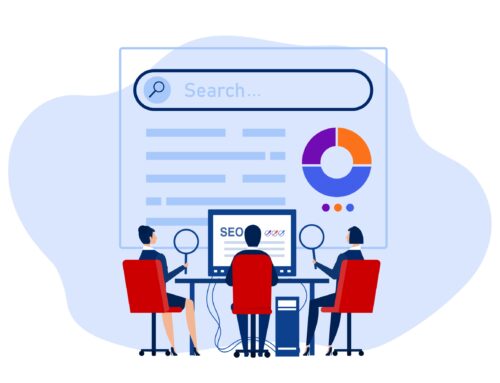Phoenix Internet marketing is essential for businesses in 2024. As more consumers move online, digital strategies become crucial.
This guide is tailored for beginners looking to navigate the online market. You will learn about key tactics and tools. These include social media, SEO, email campaigns, and more.
Understanding these fundamentals can boost your brand’s visibility. Start with the basics, build your skills, and grow your online presence.
Whether you are a small business owner or a budding marketer, this guide will help you succeed.
Building a Strong Online Presence
Your online presence begins with a professional website. This serves as your digital storefront, offering visitors information about your products, services, and brand values.
Ensure your website is user-friendly, mobile-responsive, and optimized for search engines to attract more traffic.
Creating effective social media profiles is another crucial aspect. Platforms like Facebook, Instagram, and LinkedIn allow you to reach your target audience directly.
Share engaging content, interact with followers, and participate in relevant online communities to build a loyal customer base.
Consistency is key when it comes to maintaining your online presence. Regular updates and active engagement can significantly boost your brand’s credibility and customer trust.
Search Engine Optimization (SEO)
SEO is the practice of optimizing your website to rank higher on search engine results pages (SERPs). A high ranking increases your visibility, drawing more organic traffic to your site.
Focus on keyword research to identify terms your target audience is searching for.
Optimizing on-page elements like meta tags, headings, and alt texts can improve your SEO performance. Ensure your website content is high-quality, relevant, and provides value to users.
Off-page SEO, such as backlinks from reputable sites, also plays a significant role in enhancing your search engine ranking.
Staying updated with SEO trends and algorithm changes is essential for maintaining your competitive edge. Regularly audit your website’s SEO to identify areas for improvement and adapt to new best practices.
Pay-Per-Click (PPC) Advertising
PPC advertising involves paying for ad placements on search engines and other platforms. You only pay when someone clicks on your ad, making it a cost-effective way to drive targeted traffic.
Platforms like Google Ads and Facebook Ads offer robust PPC solutions for small businesses.
Creating a successful PPC campaign starts with selecting the right keywords and crafting compelling ad copy. Monitor your campaigns closely to track performance and make necessary adjustments.
Use A/B testing to experiment with different ad variations and optimize for the best results.
PPC can provide immediate visibility and quick returns on investment. However, it’s essential to manage your budget effectively to avoid overspending and ensure a positive ROI.
Content Marketing
Content marketing focuses on creating and sharing valuable content to attract and engage your target audience. This can include blog posts, videos, infographics, and more.
The goal is to provide useful information that addresses your audience’s needs and interests, driving them to take action.
Consistency is critical in content marketing. Develop a content calendar to plan and schedule your posts.
Ensure your content is high-quality, relevant, and optimized for SEO to maximize its reach and impact.
Engaging content can significantly boost your brand’s visibility and credibility. It helps establish you as an authority in your industry, fostering trust and loyalty among your audience.
Email Marketing
Email marketing remains a powerful tool for nurturing leads and maintaining customer relationships.
Building a quality email list is the first step. Offer incentives like discounts or free resources to encourage sign-ups.
Crafting compelling email campaigns involves creating engaging subject lines, personalized content, and clear calls to action. Segment your email list to tailor your messages to different audience groups, increasing relevance and effectiveness.
Monitor your email campaign performance using metrics like open rates, click-through rates, and conversions. Use these insights to refine your strategies and improve future campaigns.
Analytics and Tracking
Data is vital in Internet marketing. Tracking your online performance helps you understand what’s working and what needs improvement.
Tools like Google Analytics provide valuable insights into website traffic, user behavior, and conversion rates.
Regularly review your analytics to identify trends and patterns. Use this data to inform your marketing strategies and make data-driven decisions.
Set clear goals and KPIs to measure your progress and success.
Effective tracking and analysis can significantly enhance your marketing efforts, ensuring you’re on the right path to achieving your business objectives.
Ready to take your business to the next level?
Internet marketing is a powerful tool for small businesses in 2024.
By understanding its core components and implementing the right strategies, you can boost your online presence, engage with your audience, and drive business growth.
Remember, the digital landscape is constantly evolving. Stay updated with the latest trends and best practices to remain competitive.






